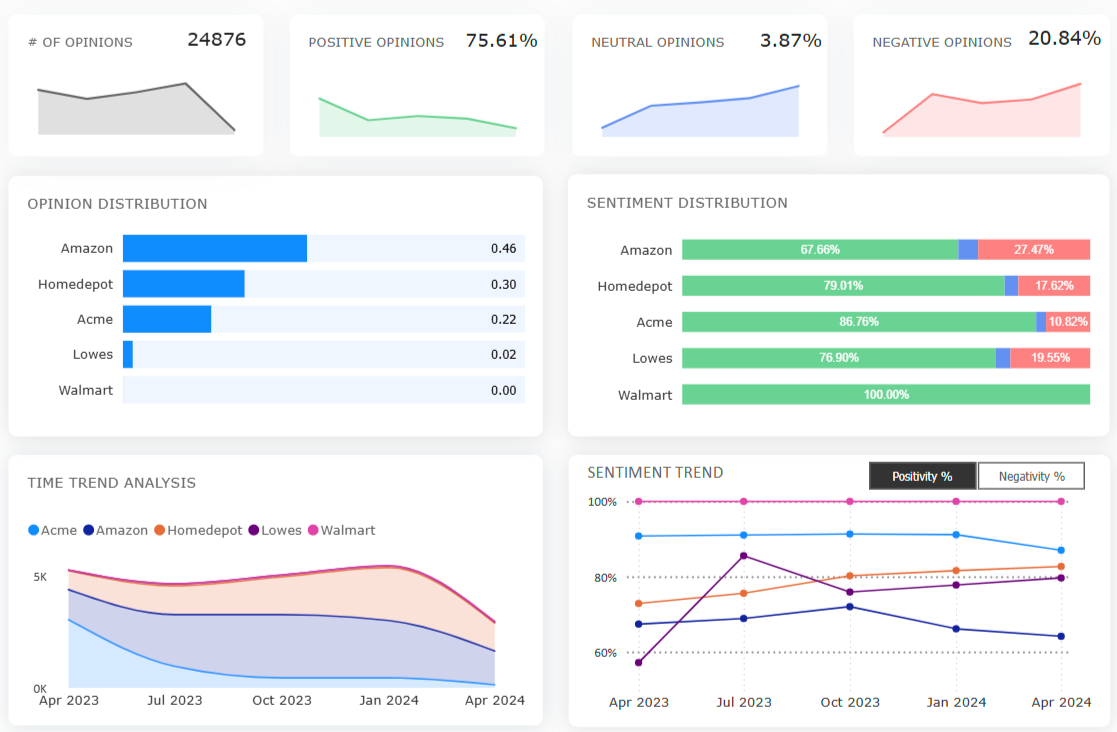🎉 Clootrack recognized by OpenAI for crossing 100 billion tokens in Voice of the Customer analytics →
Read the story
Reading time:

May 8, 2024

Data analytics plays an irreplaceable role in the success of businesses and the enhancement of customer experience. In today's competitive landscape, companies rely on data analytics to make informed decisions, understand consumer behavior, and drive strategies for growth. By analyzing raw data collected from multiple sources, businesses can gain relevant insights that help them stay ahead of the market and deliver personalized experiences to their customers.
Without adequate data analytics practices, companies may struggle to understand market trends, customer preferences, and areas for improvement, ultimately hindering their success and impacting customer satisfaction.
However, despite the numerous benefits that data analytics can provide, many companies face challenges in leveraging it to achieve excellent customer experience.
In a study by Clootrack, 107 data and analytics leaders from big brands, such as Walmart, Microsoft, and Freshworks, etc., were interviewed to identify the key challenges they face in data analytics. The study revealed 18 common challenges businesses encounter and recommended solutions to overcome them.
By addressing these challenges head-on and implementing the right strategies and technologies, companies can tackle the power of data analytics to drive success and deliver exceptional customer experiences.


Effective data integration poses a significant hurdle for leaders navigating the data analysis landscape. The process involves amalgamating information from various sources, a task made challenging by disparate formats and structures. These discrepancies can result in incomplete or flawed insights, complicating business decision-making processes.
Moreover, seamless data integration demands a deep understanding of technology and data governance practices to securely transfer information between systems. Consequently, leaders find themselves grappling with the complexities of data integration as they strive to harness the full potential of data analysis.

Companies increasingly struggle to find professionals with unique analytical skills and a strong understanding of business operations. This shortage in the job market is a growing concern as organizations require individuals who can effectively interpret data and use it to inform strategic decisions while also comprehending the complexities of industry dynamics, market trends, and organizational objectives.
The challenge lies in finding candidates who can seamlessly integrate their analytical abilities with a deep understanding of the broader business context, ultimately driving value and innovation within the organization.

Data leaders increasingly express concerns regarding the scarcity of real-time analytical tools essential for extracting valuable insights promptly.
Conventional methods fail to deliver timely analytics while existing tools struggle to process vast data efficiently. This lag in obtaining critical information impedes organizations from swiftly adapting to market shifts, meeting customer expectations, and keeping pace with evolving trends, ultimately impacting their competitive edge.

Data leaders are pushing organizations to prioritize investing in cutting-edge data analytics tools such as AI and GenAI integrated tools for quick and instant insights. By equipping teams with modern and intuitive tools, businesses can effectively process, interpret, and communicate vast amounts of data.
Further, the complexity of data in today's business environment requires more sophisticated tools to handle the sheer volume of information. Organizations can enhance their decision-making processes by empowering teams with state-of-the-art analytics tools, improve operational efficiency, and gain a competitive edge.

The study revealed that data leaders understand the significance of training and upskilling in their organizations. This acknowledgment underscores the increasing awareness of the necessity for continuous learning and development in the ever-evolving field of data analytics. With the industry constantly changing and new technologies emerging, data analysts must stay updated and acquire new skills to effectively harness data for business insights.
Investing in training and upskilling enhances individual capabilities and benefits the organization as a whole. Companies can stay ahead of the market by ensuring that all employees have the skills as well as knowledge of the latest developments in data analytics. Moreover, continuous learning fosters a culture of growth within the organization, encouraging employees to strive for excellence and contribute to the business's success.

Investing in advanced data management and analysis tools is crucial for companies to effectively handle and derive insights from large volumes of data. Building an efficient team with data management, analysis, and visualization expertise is essential for accurate decision-making and maximizing data value. Establishing a clear data strategy, breaking down data silos, and aligning key metrics across the organization are vital steps to ensure data is utilized effectively.
By investing in data analytics capabilities and integrating various data sources, companies can capture valuable insights to drive business growth and optimization. Clear communication channels and establishing a customer experience governance forum can help enhance customer satisfaction and ensure effective data utilization. Allocating a dedicated budget for data initiatives is also essential for resource allocation and ensuring the success of data-driven strategies.
Download the full report to explore all the challenges data and analytics leaders face and the recommended solutions.
Analyze customer reviews and automate market research with the fastest AI-powered customer intelligence tool.
